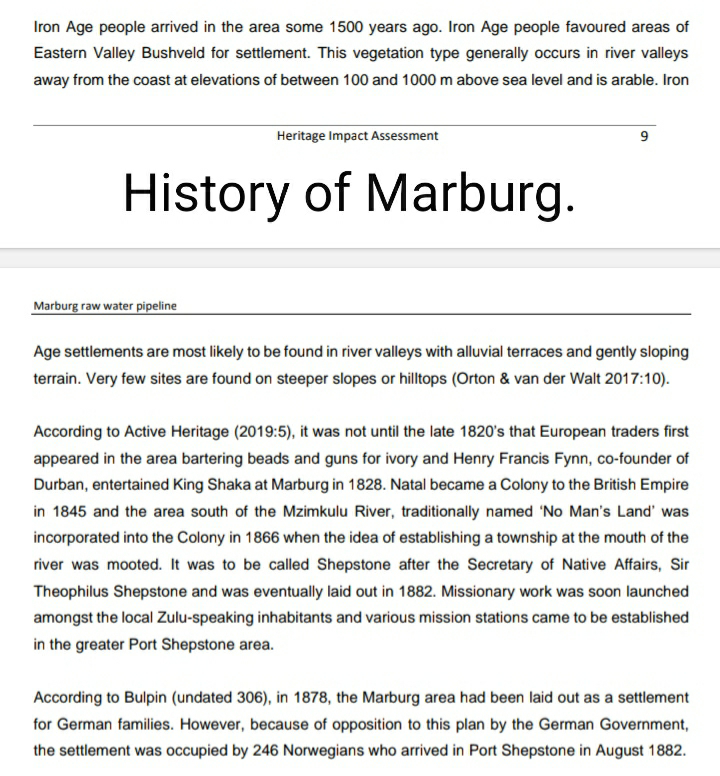The Diary of Henry Francis Fynn (Shuter & Shooter version | Amazon version) is one of the most important documents of Zulu history during the so-called "Shakan Era" because Zulu history is usually kept in clan praises & the praises of kings but there are no distinct dates of events in oral tradition. While in oral tradition the emotion & spirit of the people of a time can be captured, in written works none of these will ever become forgotten.
Marburg:
Where it is said King Shaka once met with Henry Francis Fynn in 1828. It's still called Shaka's Bush. GPS coordinates -30.7263745, 30.4371909 by road called Raven Pl.
Also, the area south of Mzimkhulu River is not a "No Man's Land". Nhlangwini, Cele & other tribes lived there & still do today.
Also, the area south of Mzimkhulu River is not a "No Man's Land". Nhlangwini, Cele & other tribes lived there & still do today.
After visiting Henry Francis Fynn in Marburg (in the greater Mbango area), King Shaka was assassinated shortly after.
As much as it's said Henry Francis Fynn had Zulu followers called izinikumbi (locusts), he was still a colonialist & his prime mission was to override Zulu authority & replace it with British rule. Maybe Zulu culture was to show travellers hospitality but this caused their downfall because they could not see that what the British were doing in Zulu territory is what the Dutch did in the Cape; which was to make a type of mixed-race people that would be just Zulu enough but undermine the Zulu way of life in favour of their European fathers. This is evident in the fact that the Griquas (mixed-race people of the Cape) were introduced to Zulu territory who rejected the Zulu way of life & seeked to found their own state called East Griqualand. The very concept of the Natal colony & introduction of Xhosa-speakers by the British missionaries north of Umzimvubu River was to prevent the Zulu expanding south causing Nguni tribes to flee into the Western Cape where they would invade Cape Town. The British did not believe that the Zulu knew their boundaries & claimed territories of the Zulu Empire leaving the Zulu Kingdom a tiny region north of Natal. The British conquest of the Zulu kingdom was aided by the Dutch who had come after King Shaka's death causing war & division in the region.






Comments